Todd Howard Is the Video Game World's Christopher Nolan
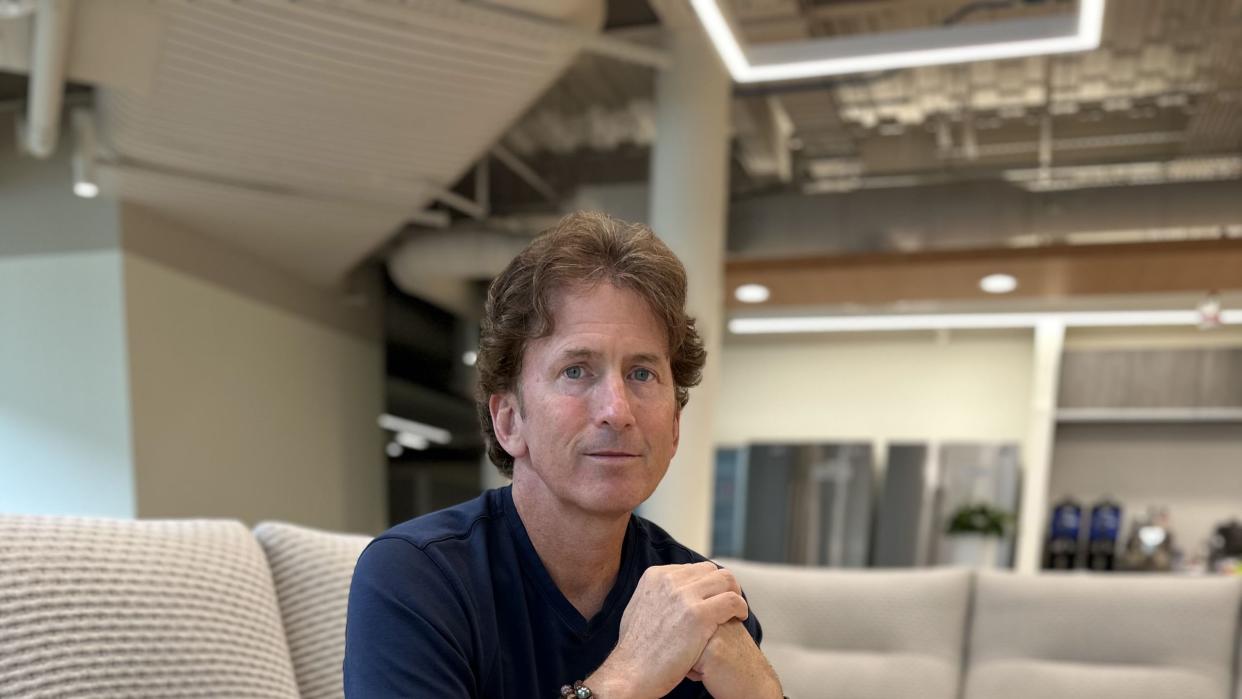
- Oops!Something went wrong.Please try again later.
“I’ve only done something like this one other time in my career,” Todd Howard tells me. We're in his office—located in Rockville, Maryland, home of Bethesda Game Studios—to discuss Starfield, his blockbuster creation that could revolutionize video games as we know it. “If I sound a little awkward, it’s because I don’t like talking about myself.”
So he excitedly shows me around his MacGuffin-filled office instead. There's a miniature Space X rocket signed by Elon Musk, an Atari joystick controller, a video game map he hand-drew in 1998, and an Apple II computer. On his arm? The same model of a watch that NASA gave Neil Armstrong for his mission to the moon.
Howard’s brother was born on the same day Armstrong made one small step—July 20, 1969—which is why he always knew he had to make a space video game. “My brother and I are very, very close. When someone in your family is born the day we landed on the moon, it’s part of your family, too. You’re celebrating that with his birthday,” he says. As children, the Howards would visit Cape Canaveral, Florida, home of the Kennedy Space Center, and dress up in astronaut suits. “I got enamored with it. Just the fact that humans landed on the moon. It’s incredible.”
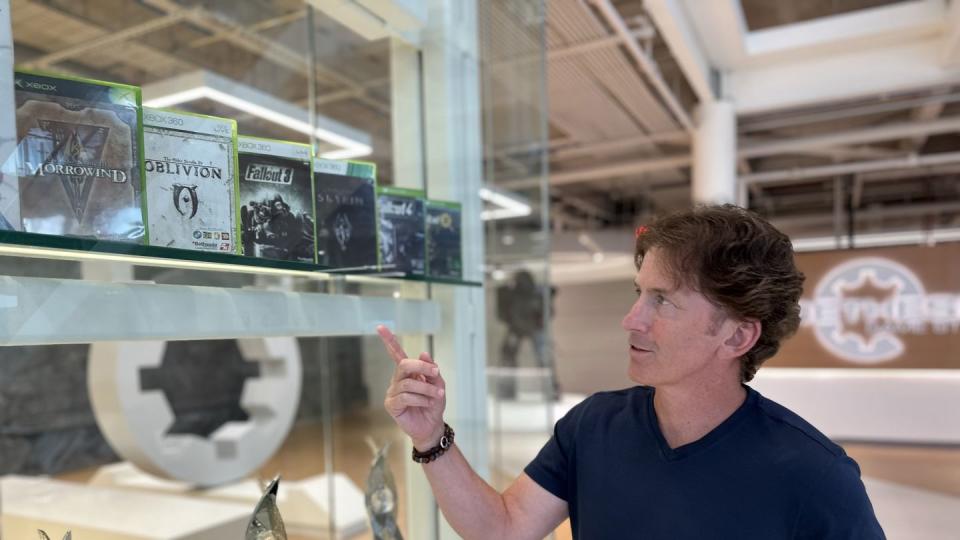
Fast-forward to the present day, and that little kid in an astronaut suit is the video game industry’s Christopher Nolan. In his thirty years working for Bethesda, Howard, now Bethesda's Game Director and Executive Producer, pushes the boundaries of the medium with every new release. The Elder Scrolls fantasy series is one of the best-selling franchises of all time, and the studio’s post-apocalyptic Fallout games will soon be the subject of a Prime Video series. While rival companies pump out annual sequels for guaranteed cash, Bethesda—which Microsoft bought for $7.5 billion in 2021—produces high-budget, meticulously crafted worlds that take the lion’s share of decades to polish and refine.
But nothing compares to Starfield, a game eight years in the making. The sci-fi epic, out today, boasts an entire universe of fictional stars, galaxies, and planets that players can travel to via spacecraft. Along the way, they shoot lasers, fight space pirates, and enjoy pure freedom, unlike anything we’ve ever seen in the medium. The twist? In the early 2300s, after decades of monumental technological innovation, humanity has ruined Earth’s atmosphere—so they have no choice but to rush toward the stars.
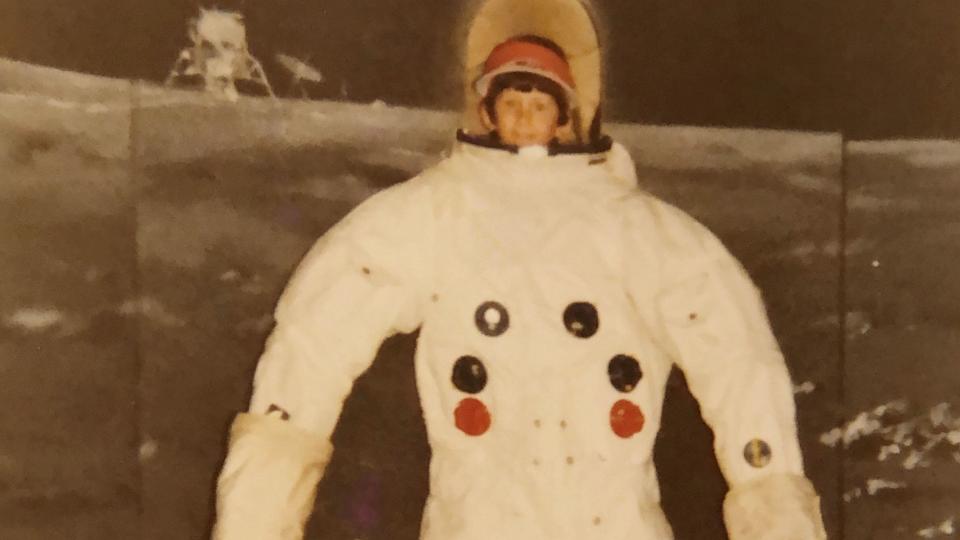
“You’re an explorer, who is arriving on this planet,” explains the 52-yeard-old Howard, who has a full mop of curly brown hair, a chiseled jawline, and a quick smile, describing the first kernel of an idea behind Starfield. “The ship needs to be one that has traveled around. It has some age on it. It draws a line between our current day and hundreds of years in the future—but not like really glossy science fiction. Not like Star Trek. It has to feel like it has utility.”
Starfield sees the player join Constellation—a collective of space explorers—in the aftermath of a civil war between two human settlements. But that's just the logline. Starfield is about collecting alien artifacts and amassing great power, just as much as it's about traveling with friends and contemplating the meaning of life. It's mysterious, wondrous, and full of awe, booming with music from the Budapest Symphony Orchestra. Players can visit all corners of the universe, including a Blade Runner-esque Neon City, which is soaked in lights, corporate spies, and all kinds of sin. In one prescient side quest, you can choose to kill or spare an artificial intelligence that claims it is a person. Playing Starfield for the first time is what I imagine a first watch of 2001: A Space Odyssey felt like: Big, boundless exploration of outer space, paired with the occasional existential threat to humanity. “We couldn’t have conceived or made a game like Starfield before," Howard says. "We needed to grow. Even then, it took far longer than we thought it would. The longer the journey you go on, the harder it is to maintain.”
The painstaking lengths of Howard’s quest show in every minute of my galactic voyage. A dozen hours into Starfield, I board a spacecraft with a malfunctioning A.I. It poses the question to me: “What’s the meaning of existence?” It’s a question the silver screen has explored for decades, but this time, I can respond directly. It’s an early sign that Starfield isn’t just about battling aliens and shooting down spaceships, though that’s part of the delight. Howard wants us to dig a little deeper, too—visiting new, strange horizons, side by side. After five days and dozens of hours in Starfield's cosmos, I realize what Howard has achieved: a game where you can be anyone, travel to nearly any planet, and choose to be chaotic good, if you so please.
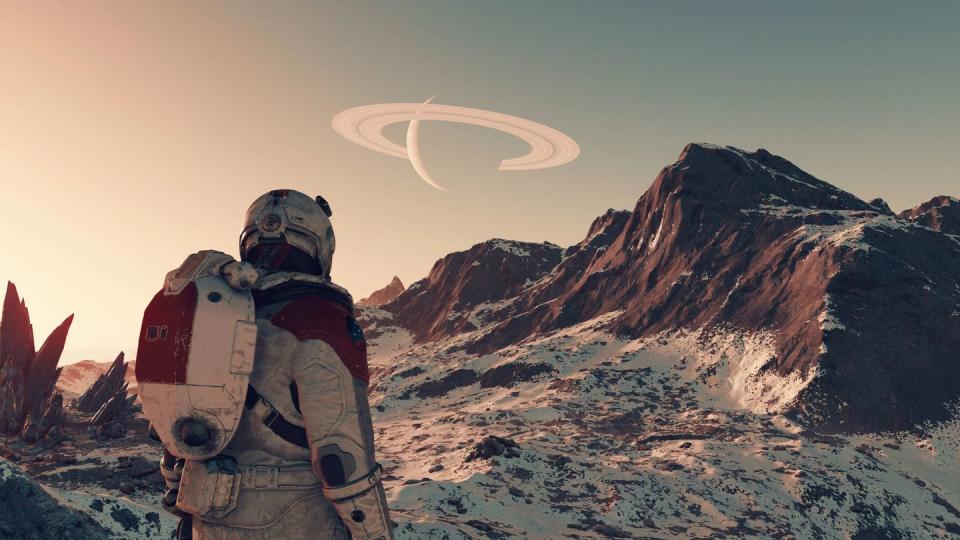
Starfield's near-limitless scope? The mere idea of it would've sounded like fiction to a young Todd Howard. “Computers and those things started coming along," he remembers of the '80s. "Video games in the arcades. I wasn't unique in liking them, but maybe a little unique in wanting to know how they worked. Like, clearly someone made this, and I could learn how to make it."Howard majored in business, since it never occurred to him that he could make money in the video game industry, because there was hardly one in the first place.
He even recalls one of his first attempts at making a game, on an Apple II computer. His creation had “a really sick” title screen, but it took up so much memory that the rest of the game wouldn’t run.
“I was like, OK, I need to get better at this,” he says.
Well, he did. Howard married his high school sweetheart, Kimberly, in 1995. Two years earlier, she got him the hockey game he wanted—Wayne Gretzky Hockey—and he looked up the address of the game's creator: Bethesda, which was founded by the entrepreneur and software developer Christopher Weaver in 1986. Around that time, Bethesda only employed around 40 people. Howard asked for a job and they turned him away, because he was still a student. But he kept at it and they hired him a year after graduation. Howard slowly worked his way up the ranks. Now, he's damn near in charge of the place.
Early on, Howard suggested that Bethesda focus less on publishing new titles annually, and more on developing bigger games across longer periods of time. "Most companies would say, 'We want a quick sequel,'" Howard tells me. "'Give us a sequel next year, the year after.' And I pitched, 'Well, how about if I take four years and make this game called Oblivion for the next generation of consoles?' If you look back, it’s crazy.'" In exchange, his bosses asked that the studio make another title simultaneously. That's how production on 1997's Fallout began.
Now, according to developers at Bethesda, Howard has a hand in everything. “Todd doesn’t scale, right? He’s still only one person,” adds Ashley Cheng, Bethesda's managing director. Cheng's job, as he puts it to me, is to “get Todd’s creative input into everything that’s going on, without making him work 24/7.”
In the Bethesda offices, Howard sits next to Cheng, who has been working at the company for two decades. In early documentaries on the making of Elder Scrolls, a baby-faced Cheng can be seen working alongside a much younger Howard. “We did the math and we calculated that we’ve spent more time with each other than with our spouses,” Cheng says.
Howard remembers answering the phones at Bethesda when people were stuck on a part of a game and called for help. Alongside his small team, he'd box the games himself, before they could hire someone else to do it. "To do anything truly great, you have to be so passionate that you naturally make other sacrifices to get there," he tells me, remembering the early days when he'd grind nonstop. “They just gave me stuff, I chewed it up, and I said, 'What’s next?'"
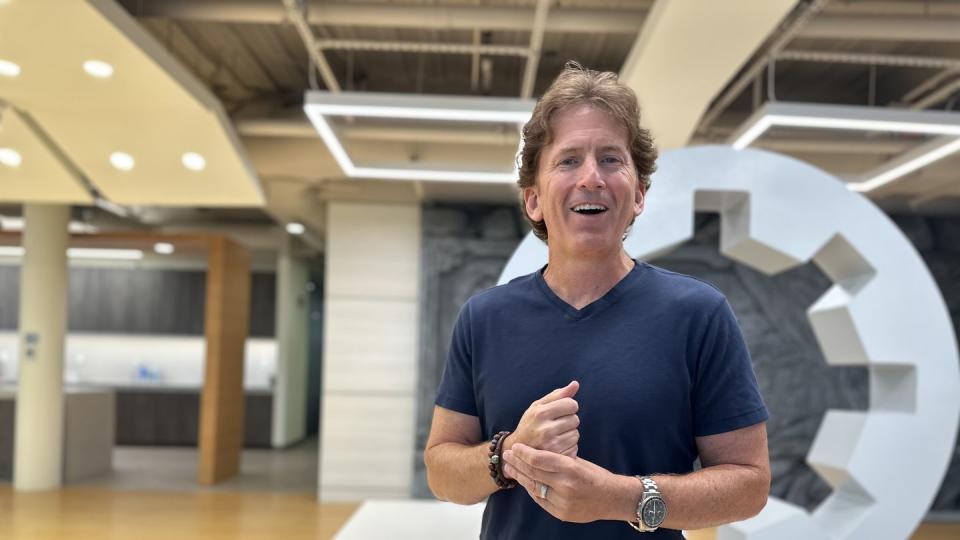
The Bethesda cafeteria looks like a scene out of Starfield: white walls, raised edges, a creeping feeling you're not on Earth anymore. Notably, the prosciutto here is $4.50, which caused me to exclaim. It’s subsidized, explains Nick Patterson, Bethesda’s senior public relations officer. I offer him some of my tater tots, but he assures me he has eaten his fill of Bethesda’s tots.
Howard says he skips breakfast these days, opting for coffee and some Athletic Greens. For lunch, he regularly eats in the office cafeteria. Starfield itself features tons of creative dishes: soba noodles, space “chunks” that may not be entirely edible, and alien jerky. Cheng says Howard is a real foodie, always planning out what they’ll eat when they go on work trips.
That's about all the personal info I receive about Howard, who likes to keep his private life private. In our time together, he didn’t speak much of his family, but did confirm that he has two sons. You'll have to close-read Starfield for any sly bits of memoir: There’s a child, Cora Coe, whom you can choose to speak to and entertain. At one point, you can tell her that she’s too young to go on adventures in outer space. If you do that, you'll have to endure some major disdain from Cora and her father.
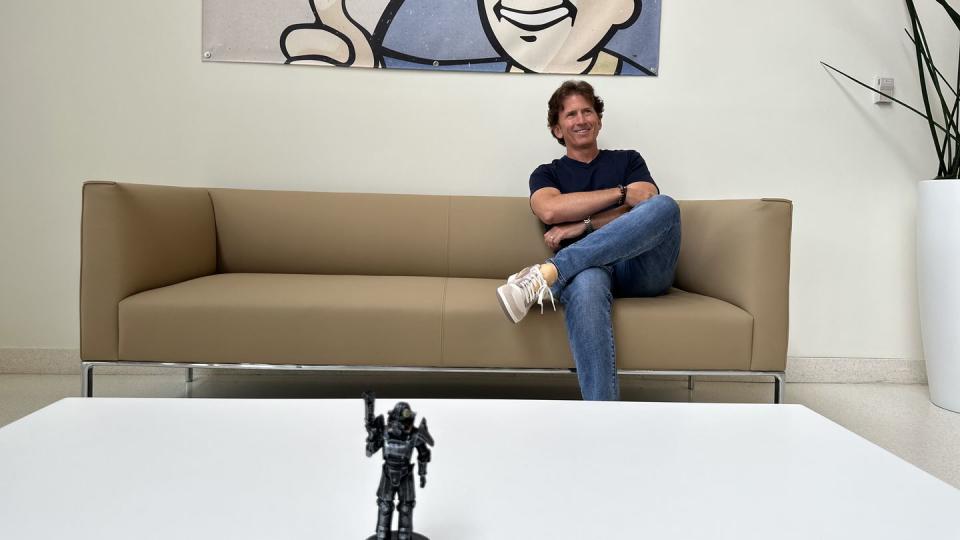
Besides, the main event is Starfield, which has enjoyed near-universal acclaim from critics, and should compete with Tears of the Kingdom and Diablo IV for game of the year honors. Aside from its gargantuan scope, Starfield is pioneering in its blending of real science with the fantasy of role-playing. If you sit in your ship and try to travel to another star? You wither away, as if you attempted the feat in real life. But Starfield, yes, is still a video game, so you can pop open the menu, select a star, and fast-travel to it within seconds. And that’s the fantasy.
“We tend to create a world that we want players to live in,” says Emil Pagliarulo, a design director at Bethesda. “That means we model things that other games sometimes don’t even go near, like crime.”
Bethesda's loyalists will tell you that the studio has achieved cult status with its games—and Howard has the Midas touch. The one exception is 2018's Fallout 76, which had such a buggy launch that it's still a sticking point with fans. But Bethesda's developers say they've learned their lesson.
“Every game we ship is tough,” Cheng tells me, attributing some Fallout 76's issues to the team's relative inexperience with making multiplayer games.
Howard adds that Fallout 76 made the studio's developers better at judging when a game is ready for release. "Even though we do so much testing, then you put it out, and ten million people play it," he says. "They’re obviously going to find a few things you missed." (Thankfully, many of the bugs I faced during Starfield's review period appear to have been solved. It was a relief to talk to people with fully formed faces again.)
Starfield is not only massive in terms of fan expectations, but in the company’s trajectory as well. Starfield's success is critical to sales of the Xbox Series X/S and Game Pass subscriptions. This summer, the company revealed in court testimony that it purchased Bethesda partly to keep Starfield from becoming a Sony PlayStation exclusive.
"Xbox has been so supportive of what we wanted to do, and I really hope it delivers for everyone there," Howard says. "The level of hype and pressure is mostly out of our control, so we just keep our heads down and make the best game we can, like we always have."
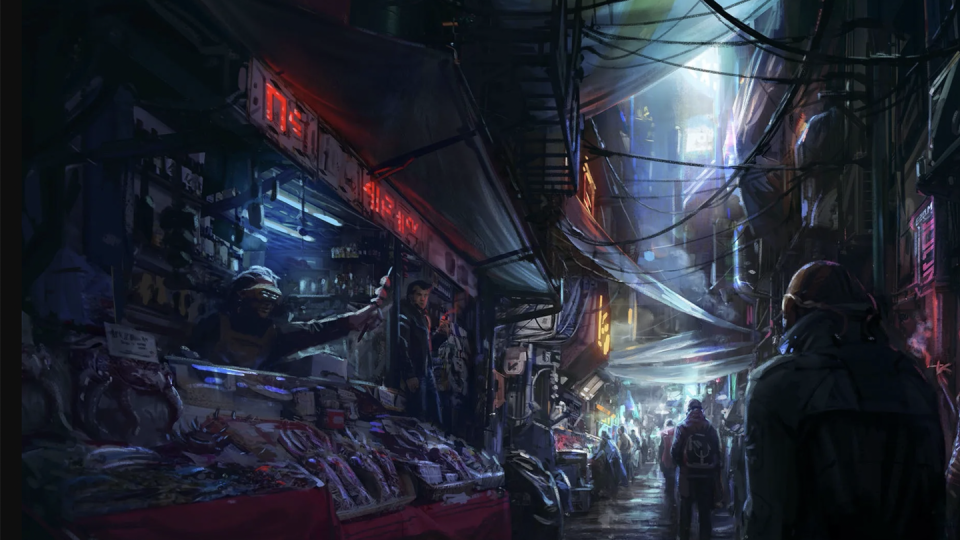
Crime is rampant in Neon City. Illicit substances flow from its seedy underbelly. Here, I decide to clock a billionaire in the head, take his bottle service into my ship as contraband, and simply watch the madness unfold. These improvised moments are some of Starfield's greatest feats. When United Colonies officers swarm my character in an all-out firefight—and blow my body away like it’s a rag doll—it’s comically oppressive, yet terribly great fun.
Though I'd be remiss not to touch upon Starfield's quieter moments, when you're asked to ponder the vast loneliness that is outer space. "We do get into themes of religion, of science," Howard says. "We ask a lot of good questions in the game. We have some interesting answers. The end of the game will be a little bit controversial."
Howard offers a fun fact: one of the Skyrim and Fallout's designers left the studio, became a Jesuit priest, and then was rehired to write some of Starfield's religious text. “It can only be written by somebody who went and legitimately did it and studied for years and years,” Howard says. “I find all of those topics very, very interesting to explore in a game like this.”
As for what’s after Starfield, Howard and his team are tackling multiple projects at once: The Elder Scrolls 6, working on the Fallout television show—which is led by Westworld's showrunners, Jonathan Nolan and Lisa Joy—and an Indiana Jones game.
Raiders of the Lost Ark is Howard’s favorite Indy adventure. In 2009, he pitched Lucasfilm on an Indiana Jones game, which has always been on his bucket list. His first dog's name was Indy, after all. It didn’t work out back then, but in the years since, Disney decided to back Howard’s initial idea. The game is being developed by Machine Games, a Swedish studio under the same company. They’re known for making Wolfenstein, which also involves fighting against Nazis. In other words, a natural fit.
“I am a giant Indiana Jones fan. It can be brought to video games in a unique way,” Howard tells me. But he refuses to go into the details, only offering, “The game is obviously: you’re exploring stuff. It’s about him. So if you’re playing the game, how do you feel that you are indeed playing versus just watching?”
Howard would talk more about Indiana Jones—I can tell he really wants to—but he’s not allowed. Instead, as I exit his office, he flashes that smile.
“We’ll talk next year.”
You Might Also Like

